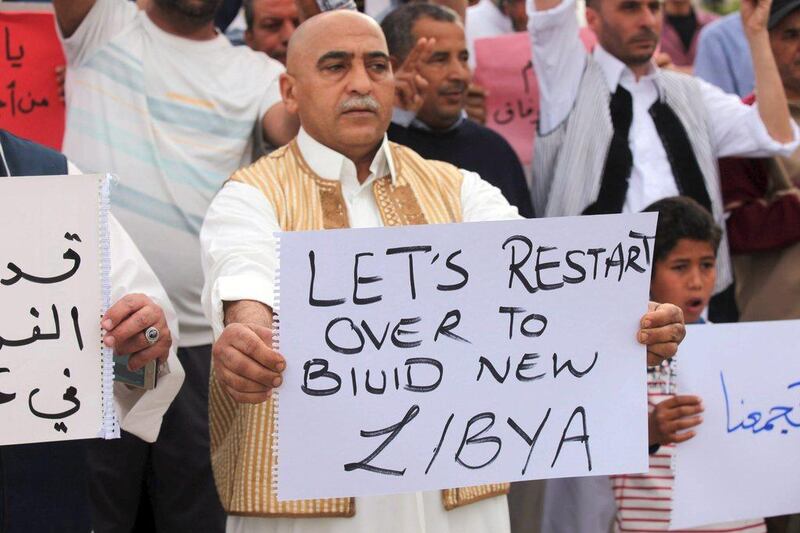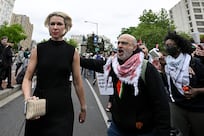TRIPOLI // The authorities in Libya’s capital announced late on Tuesday that they were ceding power to a UN-backed unity government in an attempt to prevent further bloodshed.
“We inform you that we are ceasing the activities entrusted to us as a legislative power,” said the statement issued almost a week after prime minister-designate Fayez Serraj arrived in Tripoli to assert the unity government’s authority.
The statement, bearing the logo of the so-called National Salvation Government headed by Khalifa Ghweil, said the Tripoli prime minister, his deputy premiers and cabinet ministers were all stepping aside.
It said the Tripoli authorities took the decision to quit because they were determined to “preserve the higher interests of the country and prevent bloodshed and divisions” in the country.
The administration, which was never recognised by the international community, said it was “no longer responsible ... for what could happen in the future”.
Libya has had two rival administrations since mid-2014 when the Libya Dawn militia alliance overran the capital, setting up its own authority and forcing the internationally- recognised parliament to flee to the country’s remote east.
Mr Serraj, a businessman from Tripoli, and his unity government have not yet received the endorsement of the government backed by the internationally-recognised parliament in the east.
The country has been in turmoil since the 2011 Nato-backed uprising that toppled and killed longtime dictator Muammar Qaddafi, with rival forces battling for its cities and oil wealth.
Mr Serraj, who was named prime minister-designate in December under a UN-brokered power-sharing deal, arrived at a naval base in Tripoli by sea on Wednesday following growing international calls for Libya’s rival political camps to unite behind his administration.
Since then he has received numerous pledges of allegiance, including from the National Oil Corporation and the Central Bank, backbones of the country’s oil wealth and both based in Tripoli.
Hours after Mr Serraj arrived in the capital, the Tripoli authorities demanded he leave or “hand himself in”, branding the unity government “illegal”.
* Agence France-Presse





